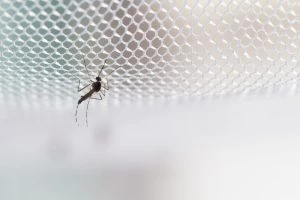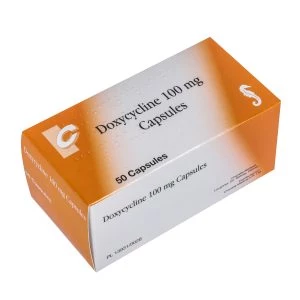Are you planning a holiday somewhere where you might be at risk of catching malaria? Make sure you put your health first by taking doxycycline as a preventative measure.
Malaria is a serious, life-threatening disease which is typically transmitted through the bite of an infected Anopheles mosquito. The parasite carried by infected mosquitoes is called the Plasmodium parasite, and this is what enters the bloodstream after a mosquito bite.
Once the parasites are inside your body, they mature in the liver and then go on to infect red blood cells. Within 48 to 72 hours, the parasites inside the red blood cells multiply, causing the infected cells to burst open. The parasites continue to infect red blood cells, leading to symptoms that occur in cycles that last two to three days at a time.
With more than half a million deaths reported every year, malaria is considered the deadliest disease in the world. Needless to say, you’d rather avoid catching malaria in the first place than having to treat it with antibiotics after the fact.
One of the drugs that is used most often for prevention and treatment of malaria is doxycycline.

Infected Anopheles mosquito bites spread malaria, stay safe when travelling with malaria prevention treatments from PostMyMeds.
What is doxycycline?
Patented in 1957, doxycycline came into commercial use in 1967 and is listed on the World Health Organisation’s Model List of Essential Medicines, which details the most effective and safe medicines required for an effective health system. Doxycycline is an antibiotic that is used in the treatment of a number of types of infections caused by bacteria and protozoa. It is useful for bacterial pneumonia, acne, chlamydia infections, early Lyme disease, cholera and syphilis.
Doxycycline is useful for both the treatment and prevention of malaria. If you’re travelling to a country where you might be at risk of catching malaria, the Fit for Travel website from the NHS can help you make your trip as safe as possible.
When should I take doxycycline for malaria?
A day or two before travelling, both adults and children should start taking one dose of doxycycline every day. Then you should take one dose per day while you’re there, and continue the course for 28 consecutive days after leaving. The daily dosage for adults is 100mg per day, and your doctor will calculate the correct daily dose for your child based on the their weight. The child’s dose should not exceed the adult dose of 100mg per day.

Doxycycline for malaria prevention treatment, available from PostMyMeds online pharmacy
When taking doxycycline, take it with a full glass of liquid and make sure you have a full stomach. Avoid milk and other dairy products within a couple of hours of taking your doxycycline dose. Doxycycline can sometimes irritate the throat if you lie down too soon after taking it, so it’s best to try and stay upright for at least an hour after your daily dose. It should not be taken at the same time as antacids and aluminium, calcium, iron, magnesium and zinc salts as they may decrease the absorption of doxycycline.
You can order doxycycline 100mg capsules on our website. All you need to do is fill out a short online consultation form and you can have the medication delivered straight to your door in as little as 24 hours.
What are the side-effects of doxycycline?
The more common side-effects include:
- loss of appetite
- nausea and vomiting
- diarrhoea
- rash
- sensitivity to the sun
- hives
- temporary discolouring of adult teeth (goes away when cleaned by a dental hygienist after the course is finished)
- Visual disturbances such as blurring of vision, which if it does occur users should avoid driving or operating machinery
- Oesophageal and gastrointestinal reactions including: sore mouth, indigestion, and difficulty swallowing
- Tinnitus (ringing or buzzing noise in the ear)
- Muscle and joint pain
Normally the side-effects are mild, and they may go away within a few days or a couple of weeks. If they’re more severe or don’t go away, talk to your doctor or pharmacist.
What other antimalarials are available apart from doxycycline?
PostMyMeds allows you to choose from a range of malaria treatments, including: Atovaquone, Lariam, Malarone and Doxycycline tablets.
Your doctor can help you decide which treatment is best for you. To make their decision, they might ask:
- where you’re going
- about any relevant family medical history
- your personal medical history, including any allergies to medication
- about any medication you’re currently taking
- if you’ve had any problems you’ve had with antimalarial medicines in the past
- your age
- if you’re pregnant
As with all malaria prophylaxis medication, protection is not absolute so it is always essential to take prophylaxis regularly. Take preventative measures to avoid mosquito bites while you’re away and immediately visit your doctor if you become ill within one year of your return.





